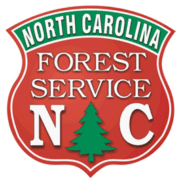Vance Commissioner Sean Alston Participates In UNC School Of Government Leadership Program
Vance County Commissioner Sean Alston has completed the Advanced Leadership Corps training offered each year to select local elected officials by the UNC-CH School of Government in Chapel Hill.
The ALC is described as an intensive leadership development program designed by the School’s Center for Public Leadership and Governance. The weeklong residential program is a dynamic experience that helps participants learn about their own leadership styles, inspire others to work toward a shared vision and gain insights into how to work together to build better relationships and achieve far-reaching results.
More than 200 local elected leaders from across North Carolina have completed this selective program since it began in 2013.
“I don’t try to compete with anyone and I never try to be better than anyone,” Alston said in a press statement. “I simply try to be better than I was yesterday. Look, listen and learn! Small steps make giant waves.”
Alston said he ran for office to make a difference in his district and in the county. “I wanted to be able to make the best decisions for our citizens because they matter the most. I am developing myself professionally so that I can give back to my community. I see true growth on the horizon and I am here for the long run. I believe Vance County is situated perfectly and ready for much needed change.”
The leadership program, through support by the N.C. Association of County Commissioners and Empower Retirement, allows elected officials from across the state to attend with only a modest cost to the local unit of government.
For more information about the Advanced Leadership Corps and other programming for elected officials offered by the Center for Public Leadership and Governance at the UNC School of Government, contact Patrice Roesler at 919.843.4167 or proesler@sog.unc.edu.



